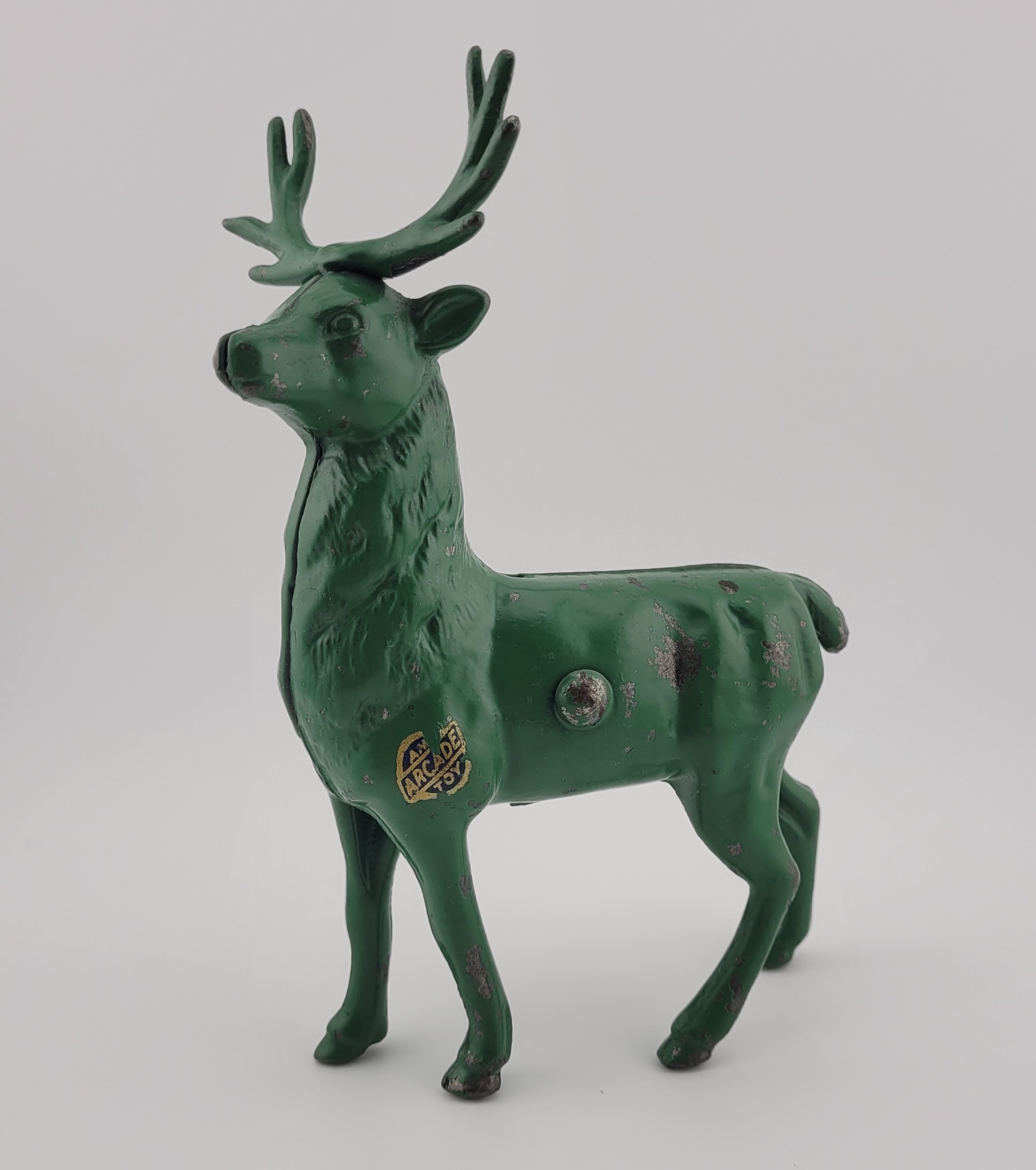
Arcade Manufacturing Company
Freeport, Illinois
The Arcade Manufacturing Company was incorporated in 1885 to succeed the Novelty and Brass Foundry. Albert Baumgarten was listed a president, Edward H. Morgan as vice-president, and his brother Charles Morgan as treasurer and superintendent. They made household items, heavier industrial castings, and a line of coffee mills for which they were well-known.
In 1891 the company moved to a building which was previously owned by the Emory and Williams Canning Company. In 1892 a devastating fire burned the new location down to the ground. No one was able to identify the cause of the fire. The fire was the knockout punch to the rapidly growing company. Everything burned including all supplies and new equipment. The company was quickly reorganized in 1893, and built a new factory at a place now known as the Arcade Addition. The Arcade Addition was land that belonged to the Keller- Wittbecker farm, and a portion of the land was sold to the Arcade Manufacturing Company.
L.L. Munn bought into the company in 1893 as a partner, principal stakeholder, and president. E.H. Morgan remained as vice-president, Charles Morgan treasurer and superintendent, and L.L. Munn, Jr., took over as secretary and sales manager. This infusion of new management and money, in addition to the recently rebuilt factory and facilities, energized the company such that new products were added.
In December of 1896 the machinery, tooling and patterns from the failed Union Plating & Manufacturing Company of Freeport, Illinois were purchased at auction. By early 1897 Arcade assumed production of many of the items formerly offered by the Union Plating Company. In addition to new household hardware items, they also added cast iron toys and safe banks. Their offerings of toys continued to grow, and in 1900 they issued a fifty-page catalog dedicated to toys and notions. It included miniature stoves, toy banks, a small line of floor trains, and a pile driver.
The senior Mr. Munn died in 1907. E.H. Morgan became president and treasurer, Charles Morgan vice-president, and L.L. Munn, Jr. continued as secretary. In 1912, E.C. Trueblood married E.H. Morgan’s daughter and soon joined the firm. The following year Florence Munn, L.L. Munn, Jr’s daughter married Isaac P. Gassman. A promising young attorney, Mr. Gassman joined the firm in 1919 as secretary and sales manager.
In 1921 Isaac P. Gassman went to Chicago to visit a friend who was a former resident of Freeport and, at the time, was president of Yellow Cab Company. The two men agreed that Arcade would manufacture a miniature copy of the well-known Yellow Cab. It was the first promotional toy to be built by Arcade, but the success was instantaneous. At the time, toys were only 5% of the Arcade line. The Yellow Cab sold so well that Arcade re-dedicated itself to larger, more expensive but well-made toys. In 1922 the first farm toy was made, the toy Fordson tractor. A toy food chopper was added in 1923 as well as a toy stove. Shortly after that an entire line of doll furniture was also added.
To accommodate the demand for their toy and other products, in 1927 a new and larger factory was added. In 1928 E.H. Morgan died, and L.L. Munn, Jr. took over the presidency with E.C. Trueblood as vice-president. The extensive automotive toys Arcade offered proved to be their salvation during the lean years of the Depression of the early 1930’s. Arcade was close to bankruptcy when the 1933 “Century of Progress” fair opened in Chicago. The toy version of the fairgrounds bus they made was a huge seller, helping to sustain the company for several more years. By 1935 Arcade also had a line of inexpensive home-shop woodworking machines that used the "Arcade", "Arcade Craft Tools", and "Craftmaster" names.
During World War II war good were made at the factory. In 1945 L.L. Munn, Jr. sold the company which became a division of the Rockwell Manufacturing Company. Toy production never resumed. L.L. Munn, Jr. retired in 1946 and was succeeded by E.C. Trueblood. Isaac Gassman retired the following year. In 1952 Rockwell moved the manufacturing from Freeport, Illinois to Tupelo, Mississippi. Rockwell’s woodworking line now belongs to the Delta Manufacturing Company.










